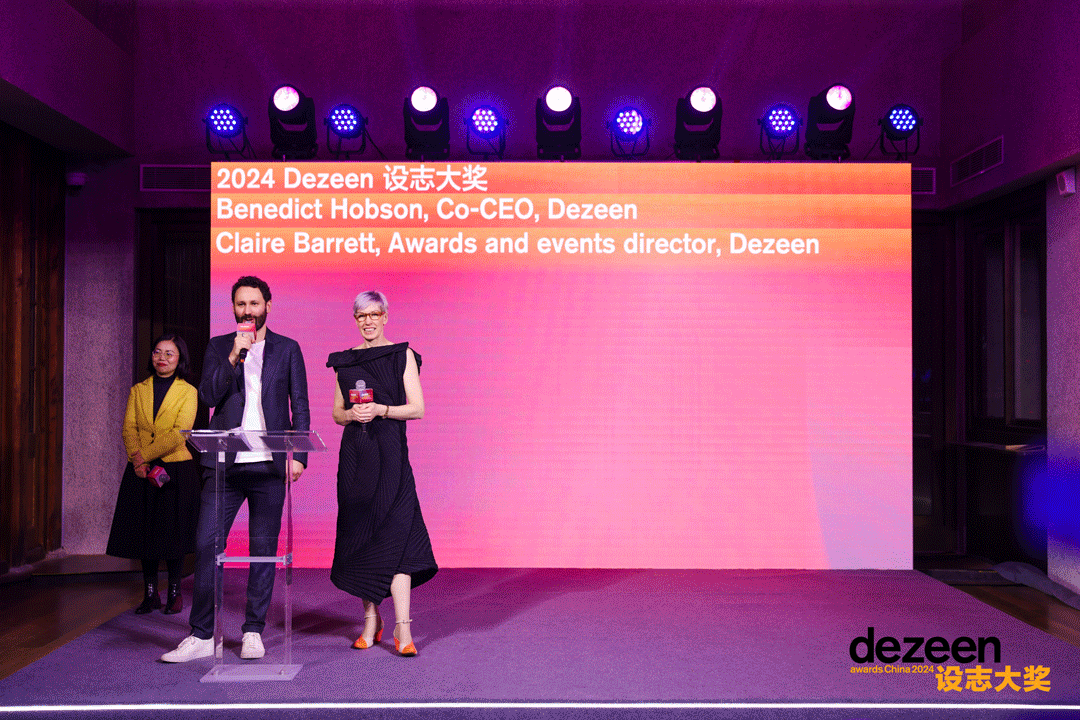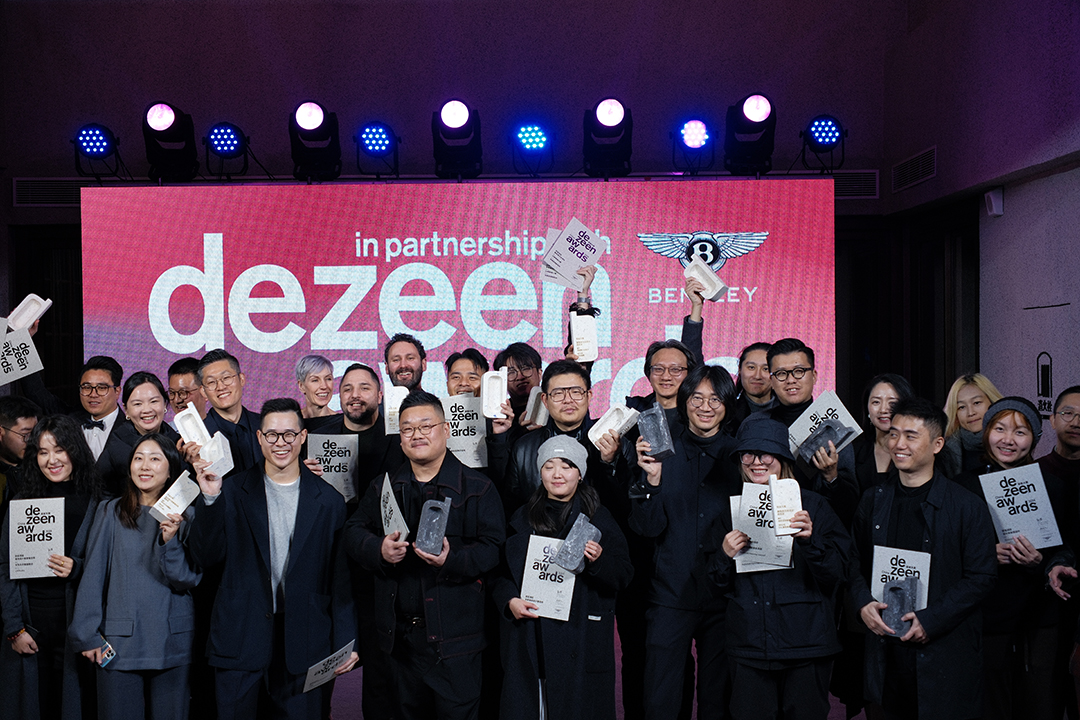

line+NEWS
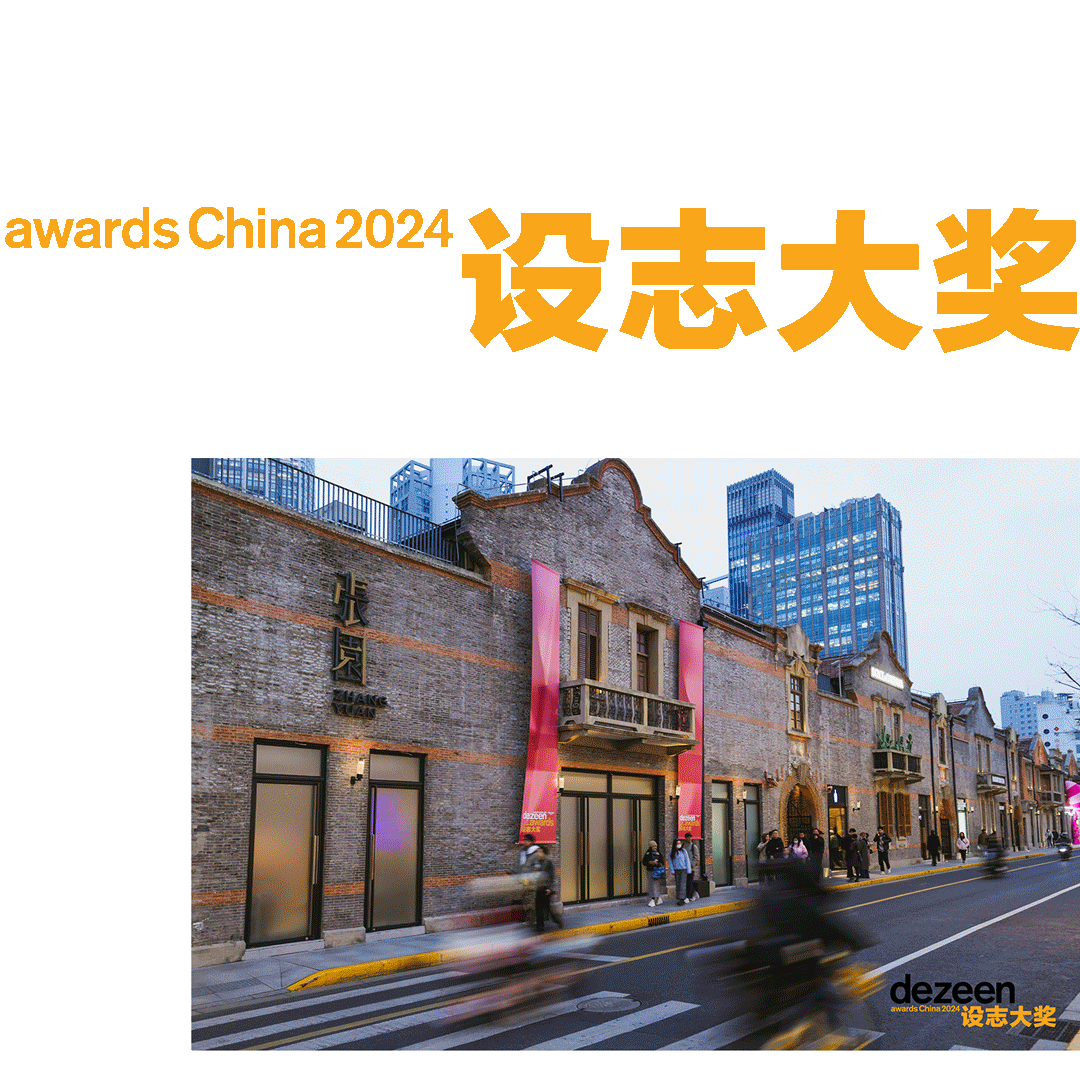
The 2024 Dezeen Awards ceremony took place on the evening of December 18th at Zhang Yuan in Shanghai, where line+ won the prestigious "Architecture Firm of the Year – China" award. Following the 2020 Global Emerging Architecture Firm of the Year award, this recognition from Dezeen is a significant affirmation of our past work and an encouragement for our continued commitment to our philosophy and creative practice.


“
This prolific studio maintains a strong balance between design creativity and quality control. Its sensitivity to local culture is fully reflected in the materials used in each project.
”
——Dezeen Architecture Jury Comment
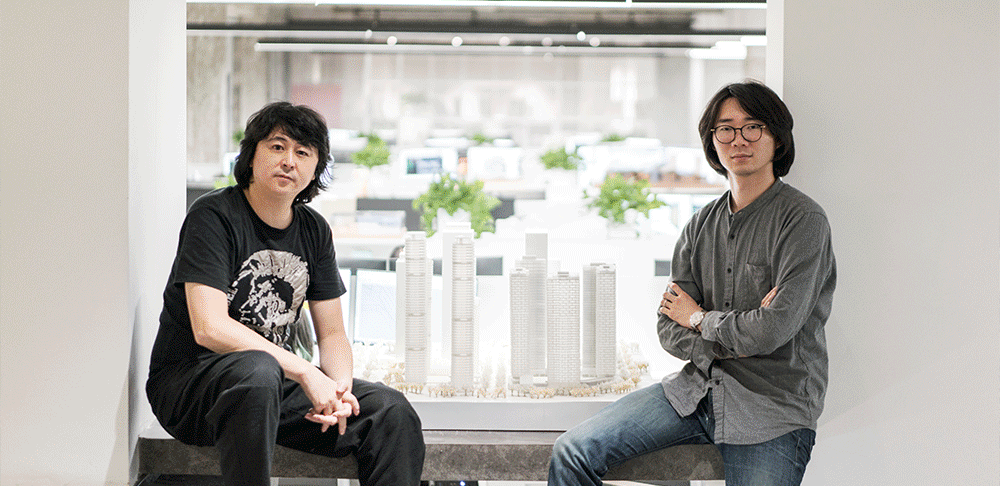
line+ was founded by lead architects Meng Fanhao and Zhu Peidong in 2018. The firm's core strategy, "space empowerment," responds to the contradictions between urban and rural areas in the context of the times, aiming to release and iterate the value of architecture across various domains such as social, economic, and cultural spheres.
In addition, two of line+'s works, the "Guangzhou Ji Yunyao Resorts" and "Wove Passage to Cloudy Peaks" won awards in the "Hotel and Hospitality" and "Landscape and Urban Design" categories, respectively, for their meticulous treatment of natural settings and innovative design.
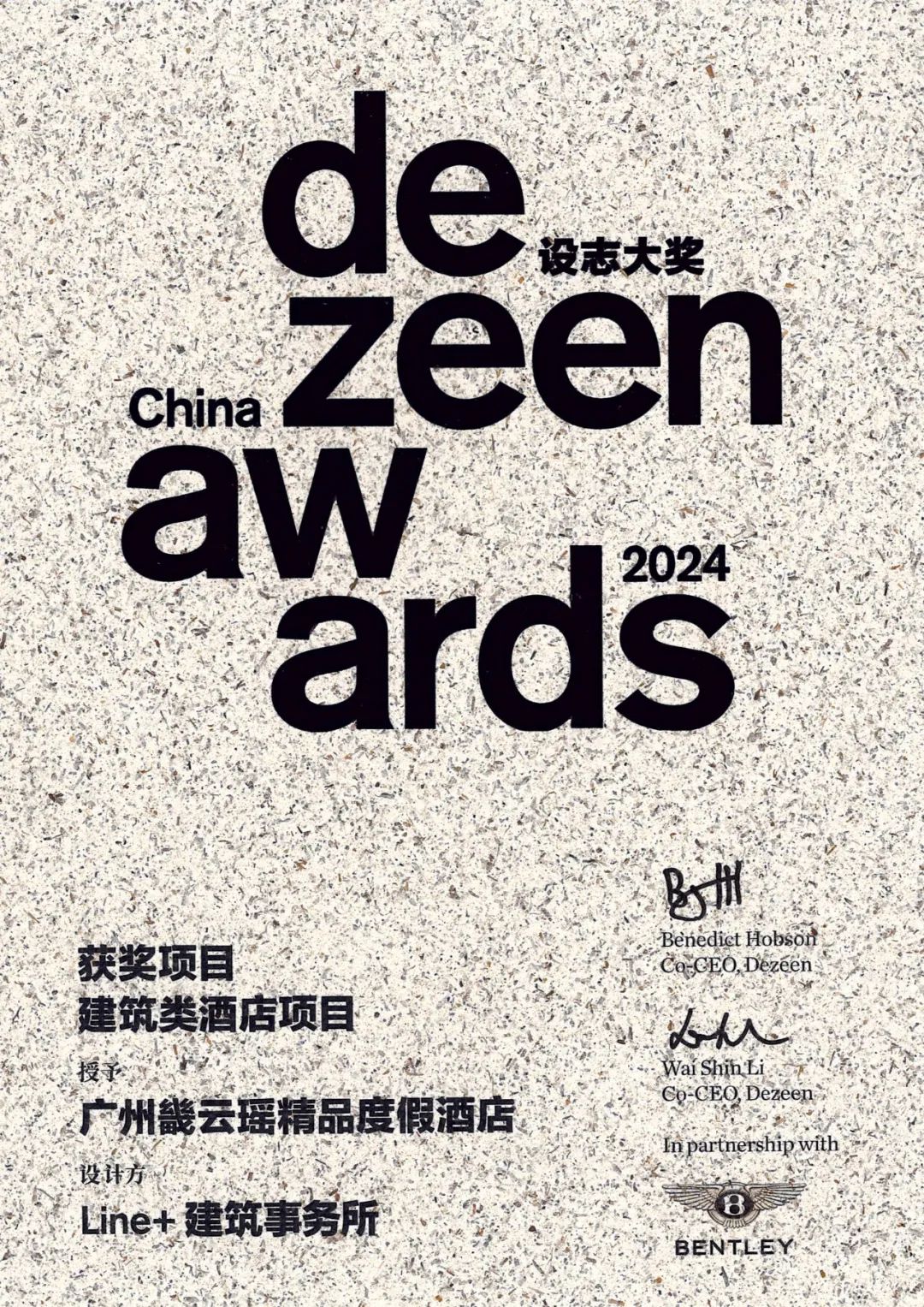
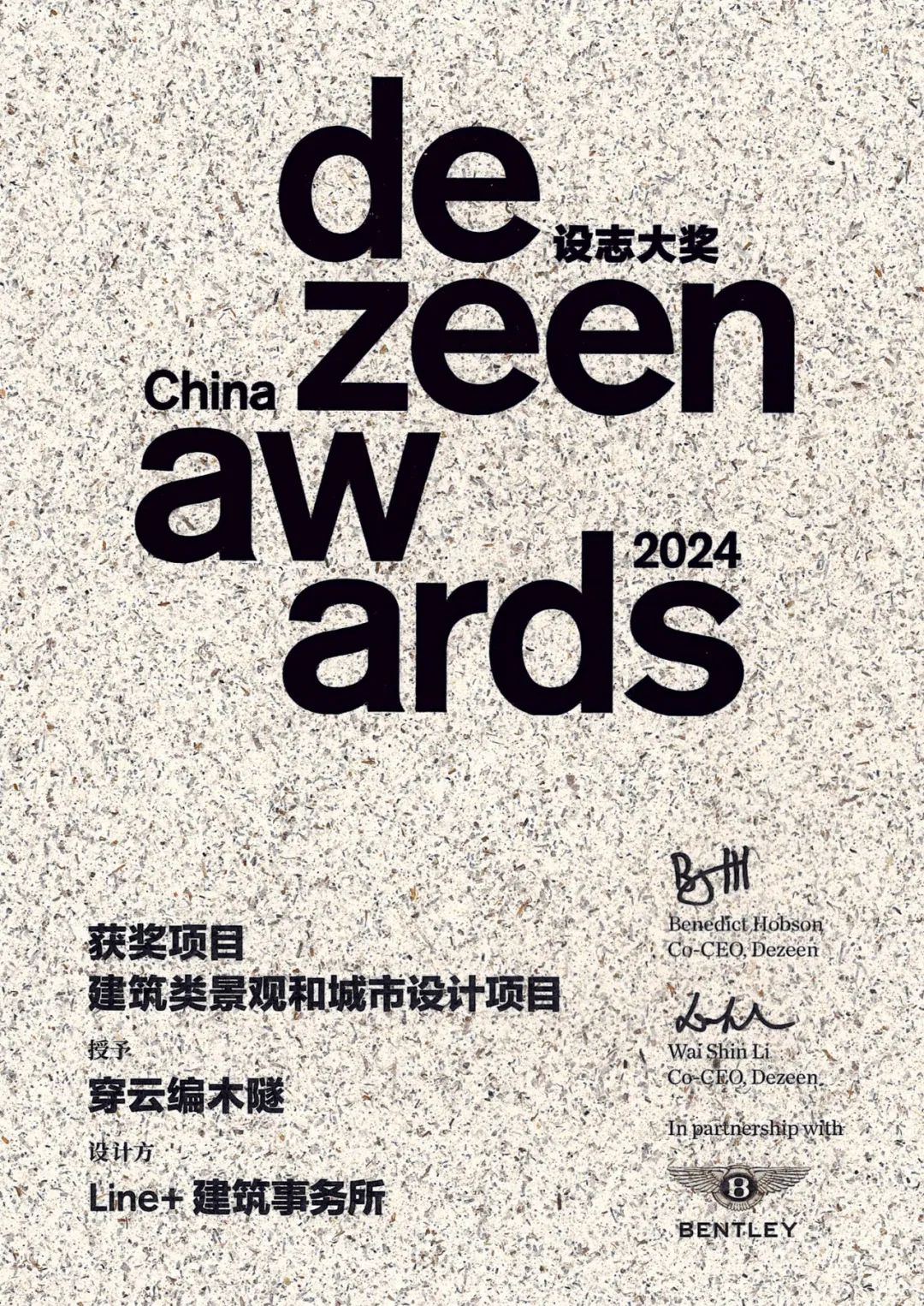
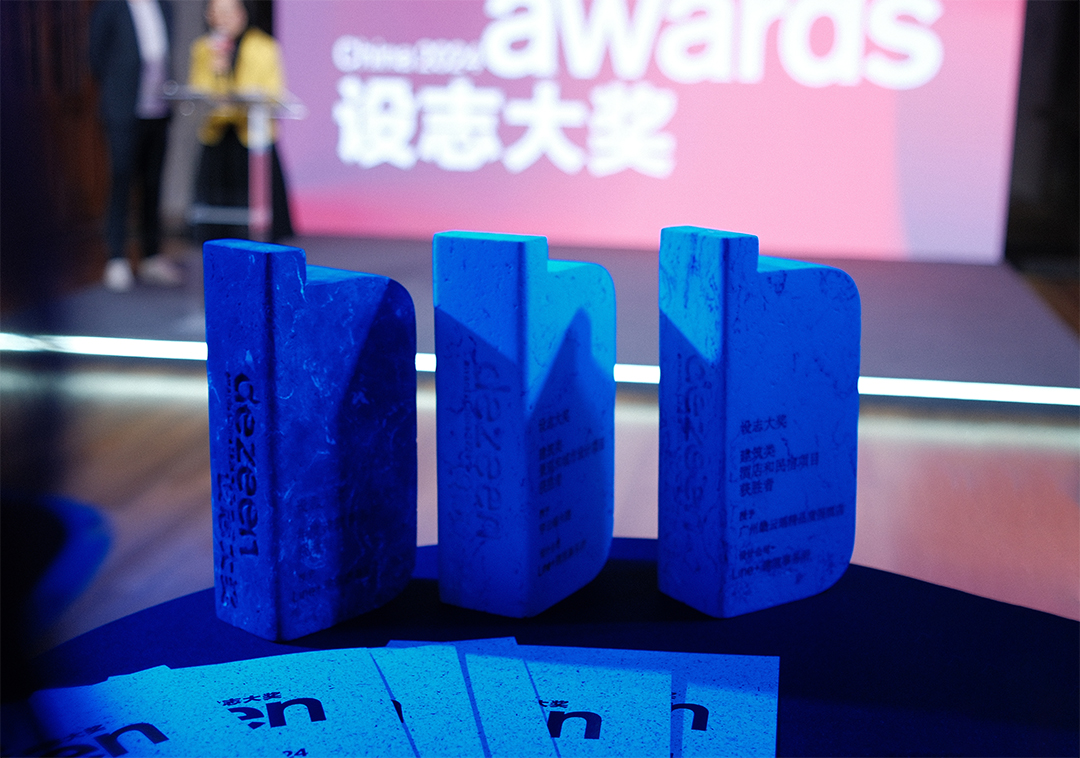

Gaungdong,Guangzhou /2230㎡/2021-2023



WOVEN PASSAGE TO CLOUDY PEAKS
Zhejiang,Xingchang /210㎡/2022-2023

Woven Passage to Cloudy Peaks is located in Xiayanbei Village, Xinchang, Zhejiang. It serves as both the entrance to a rural scenic area and the infrastructure for an ecological restoration base. The tunnel design, while meeting the required height for large engineering vehicles, adapts to the original terrain, incorporating a tiered landscape retaining wall. It connects and fills in the native hillside, using natural materials and a nature-friendly approach to achieve sustainable construction. The exterior is clad in locally sourced dark gray slate, allowing the structure to blend into the tea fields and forests. The interior features wooden construction that integrates structural support with decoration, inspired by traditional bamboo weaving techniques as a craft origin. Using modern digital fabrication methods, the project both preserves and advances local cultural memory.

